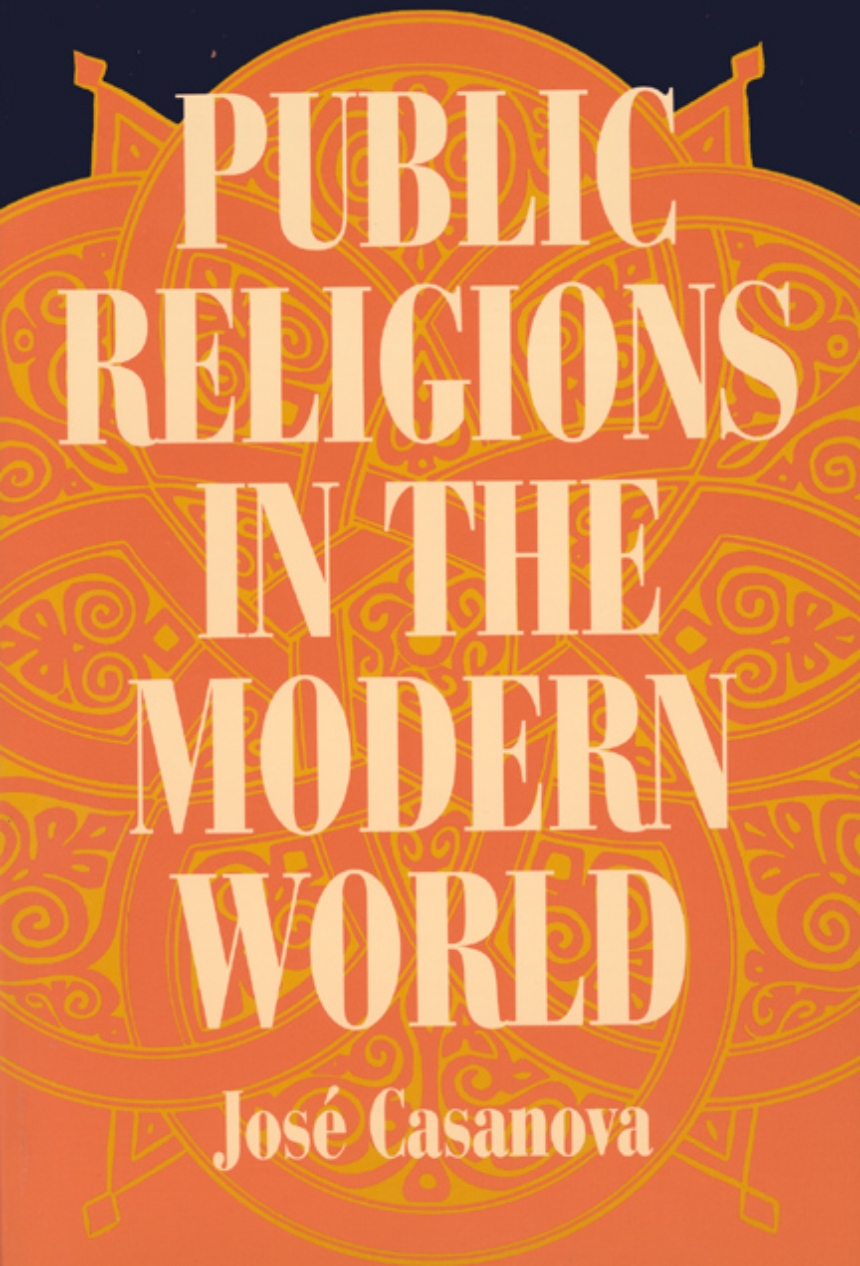Public Religions in the Modern World
In a sweeping reconsideration of the relation between religion and modernity, Jose Casanova surveys the roles that religions may play in the public sphere of modern societies.
During the 1980s, religious traditions around the world, from Islamic fundamentalism to Catholic liberation theology, began making their way, often forcefully, out of the private sphere and into public life, causing the "deprivatization" of religion in contemporary life. No longer content merely to administer pastoral care to individual souls, religious institutions are challenging dominant political and social forces, raising questions about the claims of entities such as nations and markets to be "value neutral", and straining the traditional connections of private and public morality.
Casanova looks at five cases from two religious traditions (Catholicism and Protestantism) in four countries (Spain, Poland, Brazil, and the United States). These cases challenge postwar—and indeed post-Enlightenment—assumptions about the role of modernity and secularization in religious movements throughout the world.
This book expands our understanding of the increasingly significant role religion plays in the ongoing construction of the modern world.
During the 1980s, religious traditions around the world, from Islamic fundamentalism to Catholic liberation theology, began making their way, often forcefully, out of the private sphere and into public life, causing the "deprivatization" of religion in contemporary life. No longer content merely to administer pastoral care to individual souls, religious institutions are challenging dominant political and social forces, raising questions about the claims of entities such as nations and markets to be "value neutral", and straining the traditional connections of private and public morality.
Casanova looks at five cases from two religious traditions (Catholicism and Protestantism) in four countries (Spain, Poland, Brazil, and the United States). These cases challenge postwar—and indeed post-Enlightenment—assumptions about the role of modernity and secularization in religious movements throughout the world.
This book expands our understanding of the increasingly significant role religion plays in the ongoing construction of the modern world.
330 pages | 6 x 9 | © 1994
Religion: Comparative Studies and History of Religion, Religion and Society
Sociology: Social Institutions
Table of Contents
Acknowledgements
1: Secularization, Enlightenment, and Modern Religion
2: Private and Public Religions
3: Spain: From State Church to Disestablishment
4: Poland: From Church of the Nation to Civil Society
5: Brazil: From From Oligarchie Church to People’s Church
6: Evangelical Protestantism: From Civil Religion to Fundamentalist Sect to New Christian Right
7: Catholicism in the United States: From Private to Public Denomination
8: The Deprivatization of Modern Religion
Notes
Index
1: Secularization, Enlightenment, and Modern Religion
2: Private and Public Religions
3: Spain: From State Church to Disestablishment
4: Poland: From Church of the Nation to Civil Society
5: Brazil: From From Oligarchie Church to People’s Church
6: Evangelical Protestantism: From Civil Religion to Fundamentalist Sect to New Christian Right
7: Catholicism in the United States: From Private to Public Denomination
8: The Deprivatization of Modern Religion
Notes
Index
